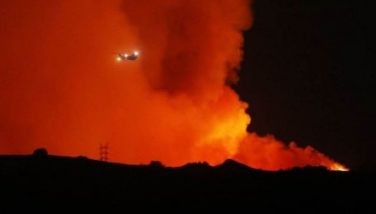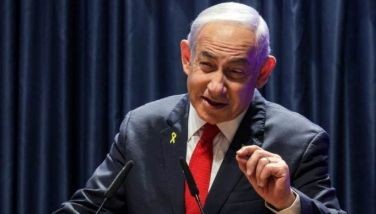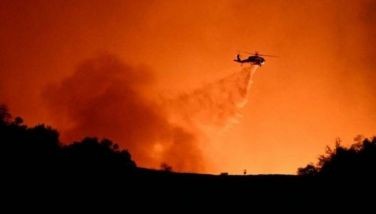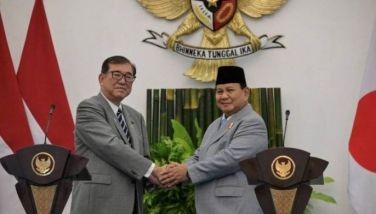4 in 10 people worldwide confined in some form
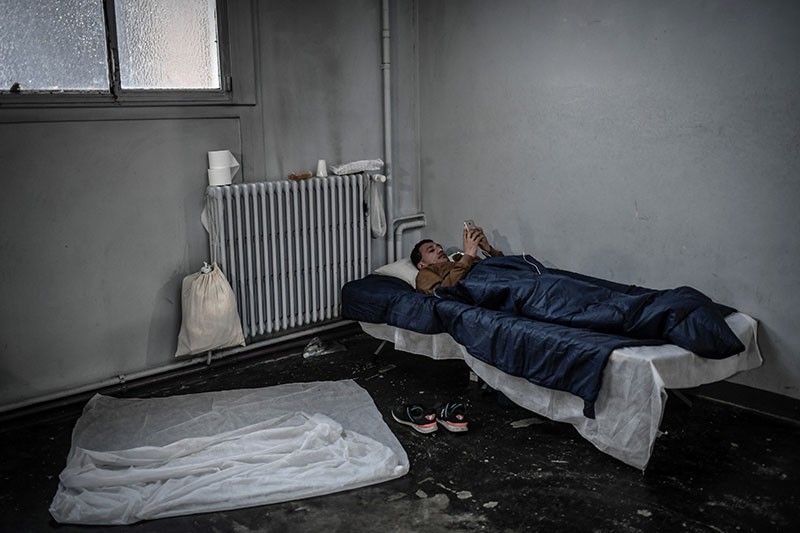
PARIS, France — More than 3.38 billion people worldwide have been asked or ordered to follow confinement measures in the fight against COVID-19, according to an AFP database Sunday.
That represents around 43 percent of the total world population, which is 7.79 billion people according to a United Nations count in 2020.
The Chinese province Hubei and its capital city Wuhan, the first epicentre of the novel coronavirus, were the first to introduce confinement measures at the end of January.
As Hubei province starts opening up again after its months-long isolation, confinement measures have multiplied worldwide in recent weeks.
By March 18 these measures affected more than 500 million people. This increased to more than a billion people by March 23, and more than two billion just a day later.
On March 25 more than three billion people were affected by confinement measures in some form.
Worldwide impact
On Sunday at least 3.381 billion people in at least 78 countries and territories have been called on to stay at home.
Most of those — at least 2.45 billion people in 42 countries and territories — are under obligatory confinement.
No region in the world is excluded.
In Europe, the affected countries include Britain, France, Italy and Spain. In Asia, India, Nepal, Sri Lanka and more are affected, while many nations have measures in the Middle East including Iraq, Jordan, Lebanon, Israel.
In Africa, South Africa, Morocco, Madagascar, Rwanda and more are affected. In the Americas, confinement measures are in place in Colombia, Argentina, Peru and more, including a large part of the United States. In Oceania, New Zealand has imposed a lockdown.
Congo-Brazzaville and two regions in Ghana will also join the list early next week.
Varying measures according to country
In most cases people are allowed to leave their homes to work, buy essential goods or for medical treatment.
At least nine countries or territories — comprising some 511 million people — have urged their populations to stay home without imposing threats of punishment.
These include Germany, Iran, Russia and Uganda.
Curfews and quarantines
At least 21 other countries or territories — comprising some 384 million people — have imposed evening curfews.
This measure is particularly widespread in Africa (Egypt, Kenya, Ivory Coast, Burkina Faso, Mali, Senegal, Sierra Leone, Mauritania, Gabon) and Latin America (Chile, Ecuador, Dominican Republic, Panama, Puerto Rico).
Saudi Arabia, Serbia and the city of Manila in the Philippines have also imposed curfews.
At least seven countries have put their main cities under quarantine, barring populations from entering and exiting.
This is the case for Kinshasa in the Democratic Republic of Congo, Riyadh, Mecca and Medina in Saudi Arabia, Helsinki in Finland, and Baku in Azerbaijan.
Follow this page for updates on a mysterious pneumonia outbreak that has struck dozens of people in China.
New Zealand Prime Minister Chris Hipkins says on Sunday that he had contracted COVID-19, testing positive at a key point in his flailing campaign for re-election.
Hipkins saYS on his official social media feed that he would need to isolate for up to five days -- less than two weeks before his country's general election.
The leader of the centre-left Labour Party said he started to experience cold symptoms on Saturday and had cancelled most of his weekend engagements. — AFP
The World Health Organization and US health authorities say Friday they are closely monitoring a new variant of COVID-19, although the potential impact of BA.2.86 is currently unknown.
The WHO classified the new variant as one under surveillance "due to the large number (more than 30) of spike gene mutations it carries", it wrote in a bulletin about the pandemic late Thursday.
So far, the variant has only been detected in Israel, Denmark and the United States. — AFP
The World Health Organization says on Friday that the number of new COVID-19 cases reported worldwide rose by 80% in the last month, days after designating a new "variant of interest".
The WHO declared in May that Covid is no longer a global health emergency, but has warned that the virus will continue to circulate and mutate, causing occasional spikes in infections, hospitalisations and deaths.
In its weekly update, the UN agency said that nations reported nearly 1.5 million new cases from July 10 to August 6, an 80% increase compared to the previous 28 days. — AFP
The head of US intelligence says that there was no evidence that the COVID-19 virus was created in the Chinese government's Wuhan research lab.
In a declassified report, the Office of the Director of National Intelligence (ODNI) says they had no information backing recent claims that three scientists at the lab were some of the very first infected with COVID-19 and may have created the virus themselves.
Drawing on intelligence collected by various member agencies of the US intelligence community (IC), the ODNI report says some scientists at the Wuhan lab had done genetic engineering of coronaviruses similar to COVID-19. — AFP
Boris Johnson deliberately misled MPs over Covid lockdown-breaking parties in Downing Street when he was prime minister, a UK parliament committee ruled on Thursday.
The cross-party Privileges Committee said Johnson, 58, would have been suspended as an MP for 90 days for "repeated contempts (of parliament) and for seeking to undermine the parliamentary process".
But he avoided any formal sanction by his peers in the House of Commons by resigning as an MP last week.
In his resignation statement last Friday, Johnson pre-empted publication of the committee's conclusions, claiming a political stitch-up, even though the body has a majority from his own party.
He was unrepentant again on Thursday, accusing the committee of being "anti-democratic... to bring about what is intended to be the final knife-thrust in a protracted political assassination".
Calling it "beneath contempt", he said it was "for the people of this to decide who sits in parliament, not Harriet Harman", the veteran opposition Labour MP who chaired the seven-person committee. — AFP
- Latest
- Trending

















